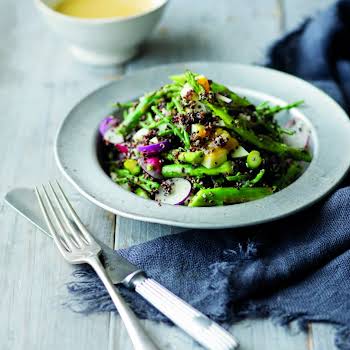This is why you need to open your eyes to Ireland’s period poverty problem. Period.
By Geraldine Carton
04th Jul 2018
04th Jul 2018
As women, we have all experienced the discomfort of periods: the cramps; the aching pains; the plummeting mood; the hassle of having to pick up new pads or tampons on your lunch break, etc, etc.
Periods are something many of us approach with a groan and an eyeroll, but it’s worth noting that for over half of Irish women, those 4-7 days every month represent more stress and hardship than many of us can even comprehend.
Period poverty
Period poverty refers to the situation a woman finds herself in when she is so financially strained that she cannot afford basic sanitary products during her menstruation. It’s a demeaning, dehumanising and a completely unacceptable reality, and yet it’s one that someone around you is likely to experience this month. To be clear, this is not an issue only affecting homeless women (although they suffer the most); it could be your neighbour, your colleague or the person making your morning coffeet.
Recent figures from a survey carried out by Plan International show that nearly 50% of teenage girls across Ireland continuously struggle to afford sanitary products month-on-month. The survey included more than 1,100 young women (aged between 12-19 years) and it went on to highlight how more than one in ten girls had to improvise with their sanitary care by using toilet paper, as the cost of towels and tampons was beyond their means.
Adding up the costs
Go into your local supermarket and you’ll see how brand name sanitary products are priced at anywhere between €2.69 and €5.95 per pack. Add in a pack of Nurofen Ibuprofen pain relief tablets which cost about €4 (nearly 70% of women take some form of pain relief during menstruation), and it’s easy to see how some women are being forced to make difficult choices every month when money is low; “do I skip breakfast all week to afford that box of tampons, or do I just use toilet paper again this month?”.
For homeless women and trans men in Ireland, the struggle is all the greater. Not only do they have limited or no access to sanitary products and pain relief (unless they gather up the funds to buy some), the addition of sleeping rough and not being able to avail of daily showers presents an incredibly grim situation.
What can be done
Scotland recently became the first country in the world to provide sanitary products to low income women for free, while schools in Scotland are now legally obligated to hand them out to all female students. This seems like a radical move for our neighbouring country to make, but really, when you think about it, it just makes sense.
While Ireland doesn’t currently have any schemes similar to Scotland (*sigh*), there are petitions you can sign to change that. What’s more, there are also some brilliant groups around the country working to get sanitary products out to the women who need it most; groups such as The Homeless Period Ireland are well worth supporting and need all the help you can give.
Menstruation is not a choice, it’s as natural and as involuntary as hunger pains and tears of joy. Women do not deserve to face monthly humiliation and stress purely because of their gender or their income, so it is imperative that women of all socio-economic groups get access to basic sanitary products. This is not only a matter of cleanliness and hygiene, it’s a matter of human dignity and care. Period.























